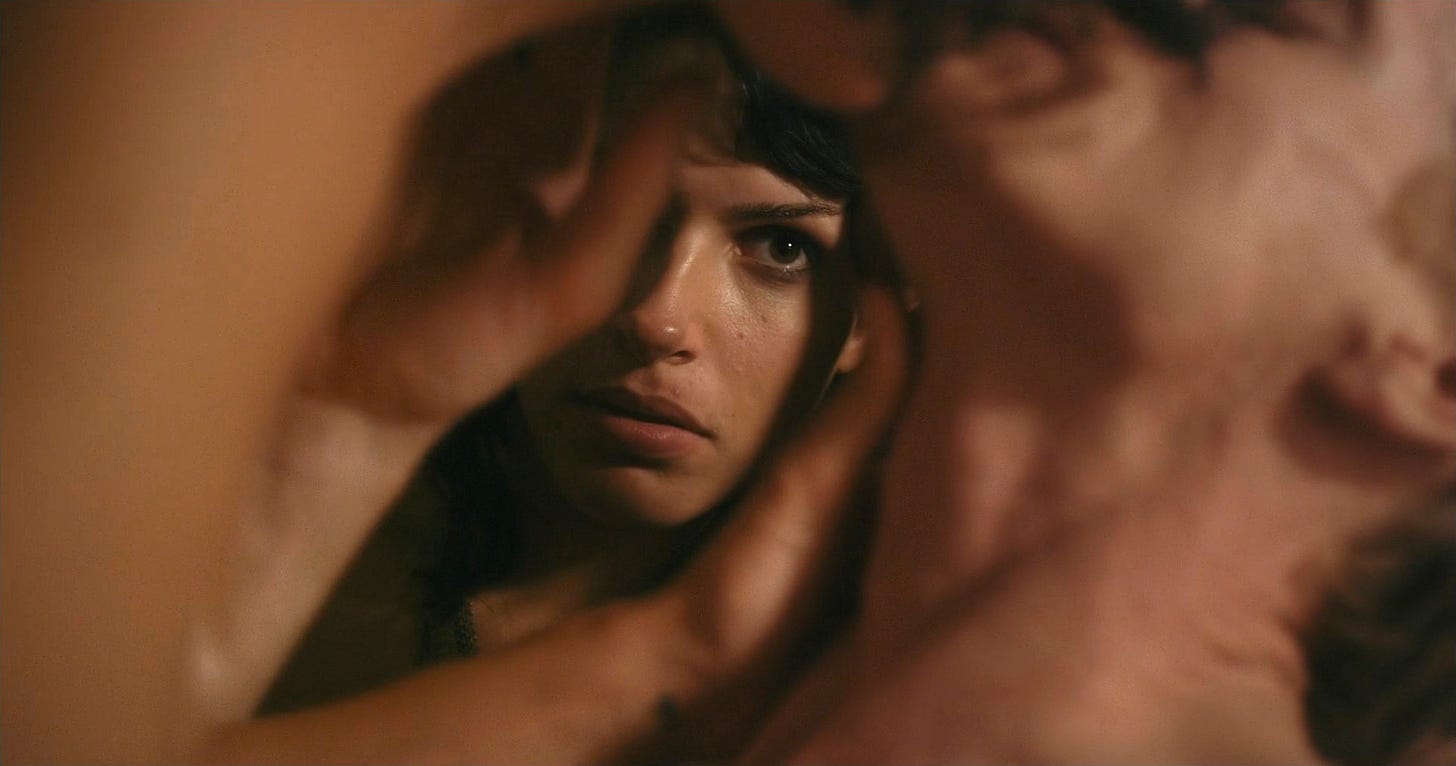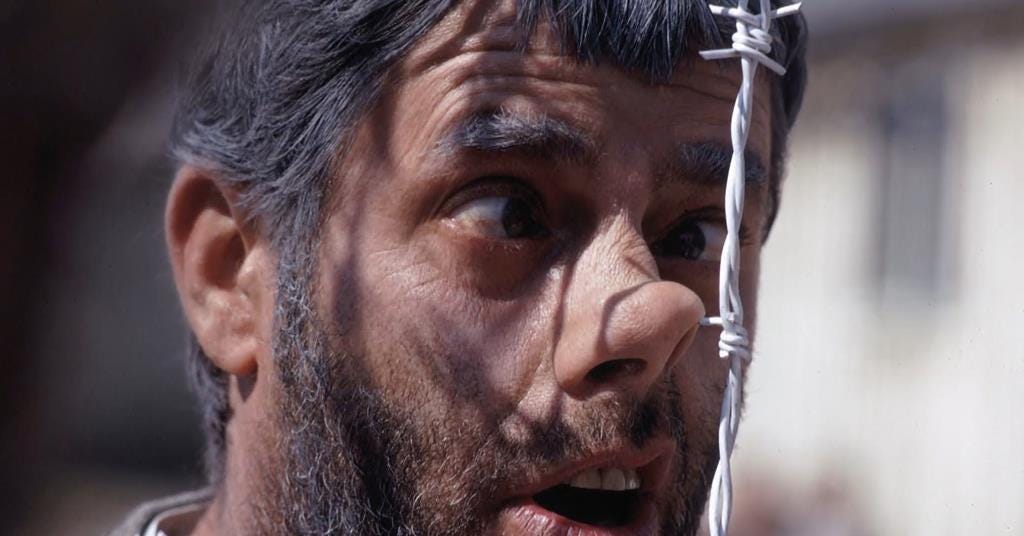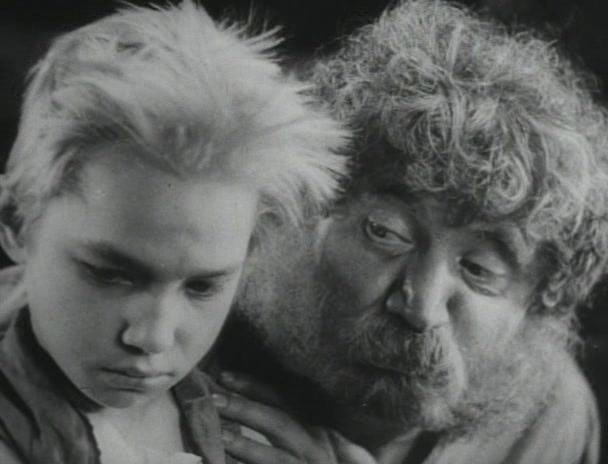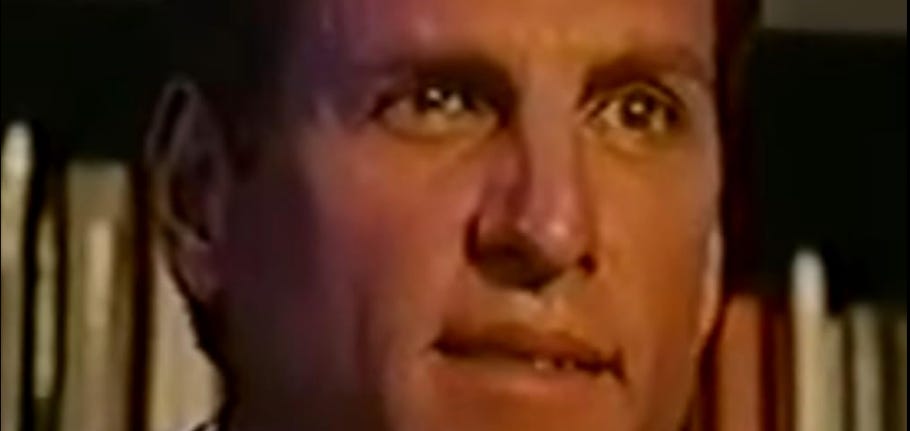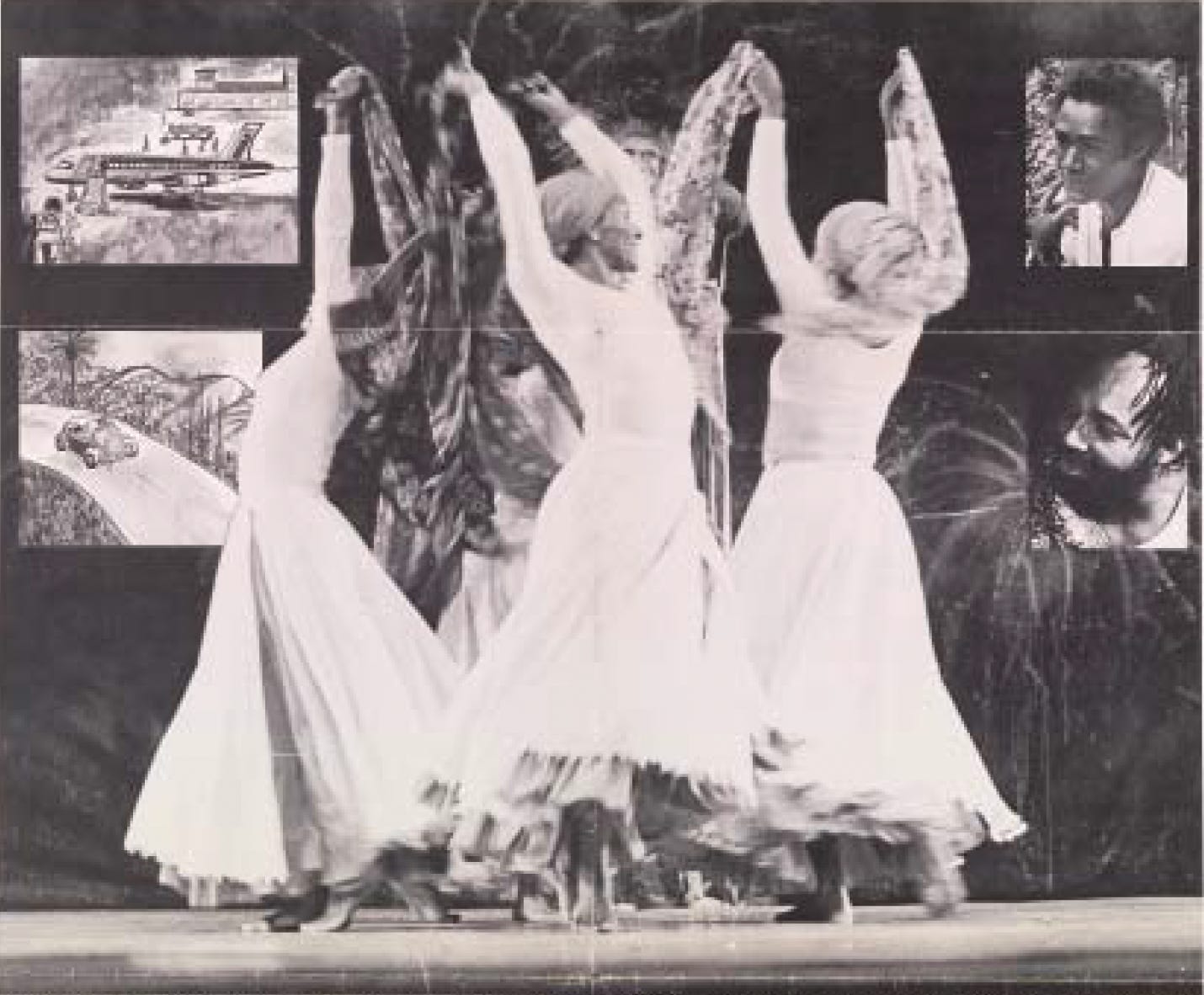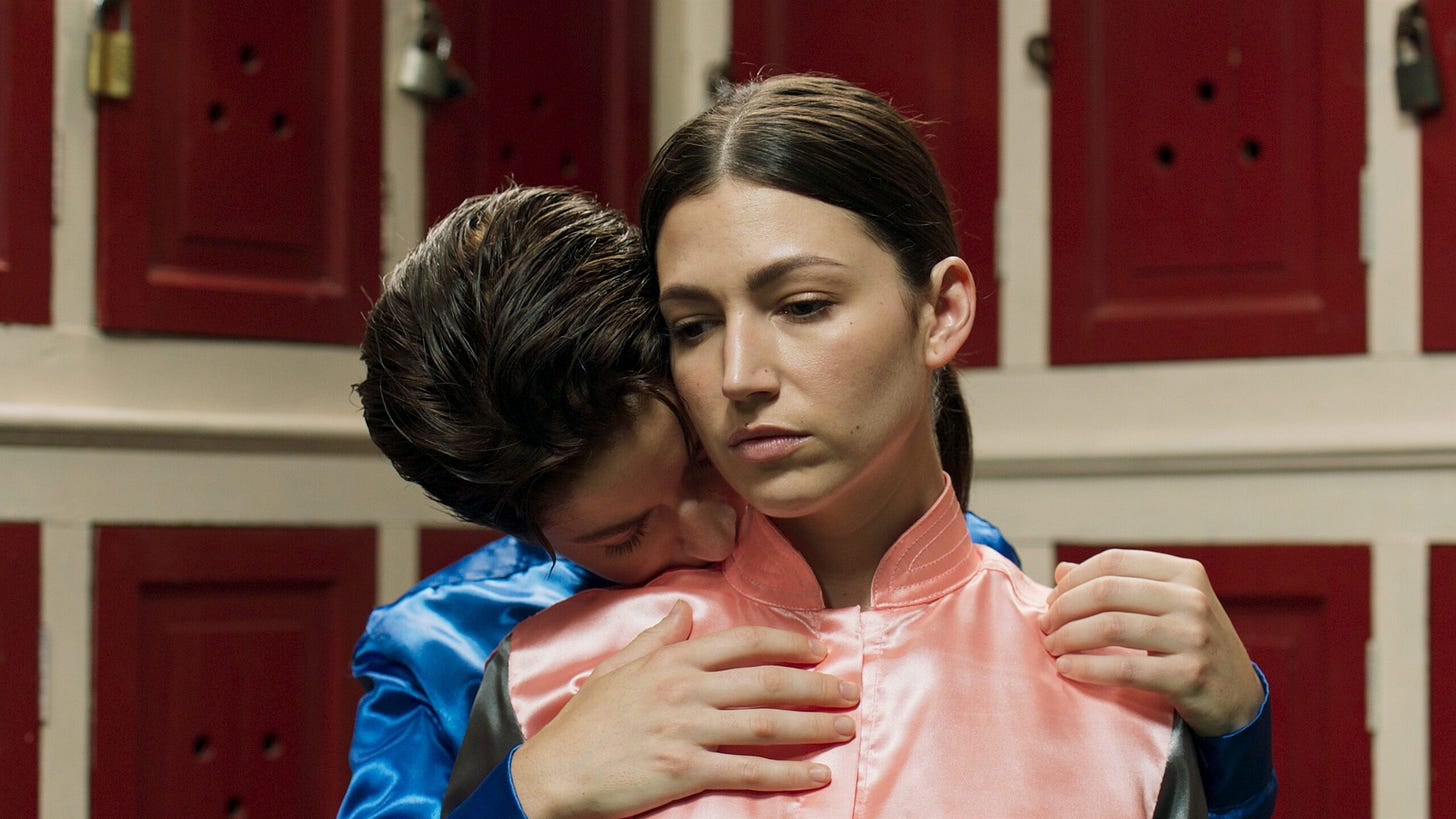Canceled Culture: Six More Movies That Were Forbidden, Banned, and Burned
You weren’t supposed to see these. So you probably should.
In the vast, shrieking funhouse of modern media, it’s easy for a film to go missing.
While most are simply crushed beneath the digital avalanche, some have been intentionally “disappeared” - smothered by authoritarian regimes, or sued into oblivion by powerful religious orders. Others have been quietly euthanized by the very auteurs who birthed them. A few are so profoundly bizarre that people doubt they ever existed in the first place. I assure you, friends, these films are - or, were - all too real. And these are their stories.
When I published the first Canceled Culture dispatch a few months back, many of you howled for more. Who am I to deny a hungry mob? So here we go again, digging in places we shouldn’t, sifting ash for the remains of six controversial cinematic orphans.
“The only way to deal with an unfree world is to become so absolutely free that your very existence is an act of rebellion.” – Albert Camus
Underexposed is a weekly ad-free film publication, funded by an unruly band of readers like you. If you believe in the power of cinema and the magic of discovery, consider upgrading to a premium subscription for exclusive essays and videos.
6. The Day the Clown Cried (1972, Jerry Lewis)
In February 1972, Jerry Lewis - the mugging, prat-falling king of comedy - wrapped up a glitzy residency at Caesar’s Palace in Vegas, and hopped a plane to Auschwitz.
He was touring the former death camp in order to recreate it - in Sweden, of all places - as the setting of his newest film, The Day the Clown Cried. It would tell the story of Helmut Doork, a clown who makes a joke about Hitler that lands him in a concentration camp. He is offered freedom – on the condition that he helps lead Jewish children to the gas chamber. So for those of you worried we may never get Joker 3 - take heart. It already exists.
In order to portray this genocidal Pied Piper, Lewis went on a grapefruit-only diet, losing 35 pounds and, apparently, his mind. You see, unlike his previous slapstick outings (The Nutty Professor, etc.), this film would not be funny. At least, not on purpose. The Day the Clown Cried quickly gained infamy as one of the most catastrophically misjudged attempts to reckon with the Holocaust ever committed to celluloid - complete with cameos by French singer Serge Gainsbourg and his girlfriend, Jane Birkin. Legal wrangling delayed its release, and ultimately Lewis pulled the plug himself. In a rare moment of candid humility, he told Entertainment Weekly in 2013:
“It was all bad, and it was bad because I lost the magic. You will never see it. No one will ever see it, because I am embarrassed at the poor work.”
For years, The Day the Clown Cried was thought to survive only in fragments. Lewis himself donated five hours of raw, nonconsecutive footage to the National Archive, unviewable until 2024, per his decree. The full film was lost - that is, until about a month ago, when Swedish TV personality Hans Crispin confessed to a crime: he had stolen a VHS copy of the film in 1980 and stashed it in a bank vault.
Journalists from Sweden’s Icon magazine have verified its existence, and on June 17th, Crispin sold his copy for a “modest sum” - to a distributor, one hopes. So perhaps after 50 years, the world will finally see the film that Spinal Tap actor Harry Shearer (who saw it back in the Seventies) once described with terrifying reverence:
“You are rarely in the presence of a perfect object. This was a perfect object. This movie is so drastically wrong, its pathos and its comedy are so wildly misplaced, that you could not, in your fantasy of what it might be like, improve on what it really is. ‘Oh, My God!’—that's all you can say.”
The Day The Clown Cried has not been released (yet), but you can get a taste with this 27-minute partial reconstruction on YouTube.
5. Bezhin Meadow (1937, Sergei Eisenstein)
What’s it like being Joseph Stalin’s favorite filmmaker? Just ask Sergei Eisenstein, the pioneer of montage and director of silent masterpieces like Battleship Potemkin (1925). In the late Twenties, Eisenstein raised some bushy Soviet eyebrows when he sojourned in Europe, America, and Mexico to make films abroad. Worried his prized director would become a deserter, Stalin summoned Eisenstein home, forcing him to abandon production on the film ¡Que viva México!
Eisenstein was given an assignment: Bezhin Meadow, a movie commissioned to glorify Stalinism by telling the story of a heroic boy killed by his father for informing on him. Eisenstein set out to make two versions of the film - one for adult viewers and one for children. The costs ballooned, the schedule slipped, and Stalin grew uneasy.
Boris Shumyatsky, Stalin’s film czar, saw an early cut and trashed the film as “a slander against the Soviet countryside, and an example of Formalism that needed to be eliminated.” Eliminated it was. Officially, it was reported to have been destroyed in a World War II bombing, but it was just as likely torched by the film czar himself. Shumyatsky savaged Eisenstein in Pravda, accusing the filmmaker of depicting forbidden religious imagery and “misusing his creative opportunity.” Eisenstein apologized for these mistakes, and Stalin spared him. Shumyatsky, however, was not so lucky. In 1938, he was arrested, convicted of espionage, and shot.
Decades later, a crude reconstruction of Bezhin Meadow was created from splices salvaged from the editing table by Pera Attasheva, Eisenstein’s wife. Some have claimed Bezhin Meadow contains some of the most transcendent imagery in the history of cinema. You can judge for yourself by watching all 26 minutes of it on the Criterion Channel.
4. The Profit (2001, Peter N. Alexander)
If you’re going to film a scrappy, thinly veiled takedown of Scientology, maybe don’t do it in Florida.
In the early Nineties, Peter Alexander was not just writing movies, he was riding them. As an executive at Universal Studios, he helped bring to life iconic attractions like E.T., Jaws, and Back to the Future: The Ride, the latter of which he co-wrote with Bob Gale. Alexander was also (at the time) a devoted Scientologist: a twenty-year member, and a million-dollar donor to the Church.
A decade later, Alexander had left both Universal and Scientology. He was embarking on a bold feature film project called The Profit - a dystopian thriller concerning a sinister religious leader named “L. Conrad Powers” and his abusive cult, the Church of Scientific Spiritualism - subtle, I know, like a brick through a stained-glass window.
Unsurprisingly, Alexander and his crew were subjected to relentless harassment throughout production. Alexander's ex-wife, still a Scientologist, launched a vicious campaign against him online. He fired back with a blistering open letter: “Cult Members beware: the more dirt you dish, the harder I'm going to nail you to the wall.”
When The Profit premiered at Cannes in May 2001, all copies of the trailers were mysteriously stolen. This was merely a prelude to an April 2002 court order, which blocked distribution of The Profit worldwide - a denial of First Amendment rights that is unprecedented in US cinema history. Worse still, producer Bob Minton, once a prominent Church critic, had allegedly flipped - he signed a power of attorney document handing the movie’s release rights over to his lawyer, Thomas McGowan. Co-signing the document was the head of Scientology’s Office of Special Affairs.
It was a clean kill by Hollywood’s most infamous religion - The Profit has never seen the light of day. But - praise Xenu! - you can watch a surviving seven-minute clip here.
3. Every N****r Is a Star (1974, William Greaves)
By the early Seventies, actor Calvin Lockhart was at the height of his career. After making his name as the first black member of the Royal Shakespeare Company in London, Lockhart found wider fame as a fixture in “blaxploitation” films like Cotton Comes to Harlem (1970) and Uptown Saturday Night, directed by Sidney Poitier. But Lockhart wanted more: “I don’t want to be a glossy black glamour boy. I want to make a constructive contribution to the progress of black people in every sphere.”
And so, in 1974, Lockhardt partnered with experimental filmmaker William Greaves (Symbiopsychotaxiplasm: Take One, 1968) to make an independent film in Jamaica - a film for Caribbean audiences, made by Caribbean filmmakers (Lockhart and Greaves were of Bahamian and Jamaican ancestry, respectively). It would tell the story of a successful black actor (Lockhart) returning to Jamaica after becoming disillusioned with Hollywood, and seeking to make something authentic. It would also feature musical cameos from Inner Circle, Big Youth, and the Fabulous Five.
“Even though it has been completely forgotten and appears to be lost,” writes scholar Erica Moiah James, “what is known of the film’s content reflects Lockhart’s political perspective and abiding respect for the kind of diasporic dialectical imagination he saw expressed in Jamaican music and arts during this time.” As it would turn out, perhaps he misjudged. In November 1974, the film premiered in Kingston, Jamaica, and in Nassau, Bahamas to confounded and furious audiences. Perhaps they were expecting a “blaxpoitation”-style action comedy from Lockhart, not an avant-garde documentary about the “diaspora.” The title, jarring and confrontational, was meant to reclaim a slur and “subvert the colonial imagination,” but again, for whatever reason, the audience did not connect.
The film was never shown outside of these screenings. Boris Gardiner’s popular soundtrack for the movie, however, was a success at the time, and lives on - it was sampled by Kendrick Lamar in the opening track of To Pimp a Butterfly (2015). You can listen to the soundtrack here.
The list continues below. But first, the news:
News Reel
Why Did Hollywood Stop Making Comedies? Daniel Parris of
has a deep analysis of a question that’s dogged me for years: “The unfortunate reality is that mainstream comedy no longer aligns with an operating model that defines 21st-century Hollywood—one that prioritizes Wall-Street-friendly revenues and visual spectacle over modest, reliable profits.”
“I believe in human beings and the human element with my whole entire heart, and our ability to overcome something is fundamentally predicated on facing it in the first place.” -
dropped a sharp, essential essay on the true costs of AI for creatives. You should read it - not because I get a shout-out alongside some of my favorite fellow Filmstackers. Though that, too, is true.Did you know filmmaker Alyssa Rallo Bennett, who was featured on Underexposed in February, is also a musician? It’s true. Her new track, “Eggshells & Rollercoasters” (great title, right?) is out now. Give it a listen on Soundcloud or Spotify.
Since we’re in music promotion mode: a music video I directed and animated for the Minneapolis band Sexdrive is out today. If you’re looking for a groovy song of the summer from the land of Prince - and sweaty ‘80s aerobics energy - this one’s for you.

“We Are Animal” by Sexdrive, out now
Now in Theaters
Kill The Jockey (2025, dir. Luis Ortega) Truth be told, I’m not usually one for quirk. Too often it assumes the style and appearance of being “funny,” while the substance is arch, self-satisfied, and hollow. Kill the Jockey, the latest from Luis Ortega, is quirky, but its strangeness is tethered to actual human emotions. And the film’s visual style is like a Hermès catalog on horse tranquilizers. Give the trailer a watch here.
Also recommended: Christian Swegal’s gutting American tragedy, Sovereign. Nick Offerman and Jacob Tremblay are both Award-worthy here. I also loved Mahdi Fleifel’s To A Land Unknown, a Midnight Cowboy-flavored story of a duo of Palestinian refugees living on the fringes of Athens.
That’s all for the free edition of Underexposed. Paid subscribers, enjoy the final two “Adults Only” canceled culture selects. This is the deep end now. Bring a flashlight.
Keep reading with a 7-day free trial
Subscribe to Underexposed to keep reading this post and get 7 days of free access to the full post archives.



